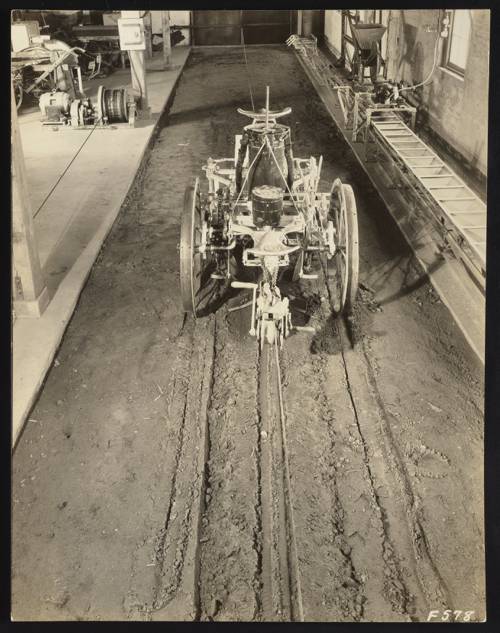
FAQ About Indoor Plant Soil Remineralization

What is soil remineralization for indoor plants?
Soil remineralization for indoor plants involves the process of adding minerals back into the soil to enhance its fertility and support healthier plant growth. This is often done by incorporating rock dust or mineral amendments that release essential nutrients like magnesium, potassium, calcium, and trace elements slowly over time. This process helps in restoring mineral-depleted soils, improving plant vitality, and promoting a sustainable growth environment.

Why is soil remineralization important for indoor plants?
Soil remineralization is crucial for indoor plants because it replenishes vital nutrients that are often absent in potting mixes. Over time, essential minerals can be leached out of the soil or consumed by the plants, leading to deficiencies that affect plant health and growth. Remineralization helps in restoring these nutrients, ensuring that plants receive balanced nutrition, which is vital for their overall health, disease resistance, and growth productivity.

How can I remineralize my indoor plant's soil?
You can remineralize soil by adding mineral-rich amendments like rock dust, greensand, or azomite. These materials are sprinkled on top of the soil or mixed into it. It's important to follow product instructions regarding the application rates to avoid over-supplementation, which can be harmful. Regularly testing soil and adjusting based on the plant's observed needs is also recommended for optimal results.

What are the benefits of soil remineralization for indoor plants?
Soil remineralization provides numerous benefits including improved plant growth, stronger roots, better flowering and fruiting, enhanced disease and pest resistance, and richer soil biology. By replenishing depleted minerals, it also helps in maintaining the structural integrity of the soil, promotes better water retention and drainage, and supports beneficial microbial activity.

Can I use ordinary garden soil minerals for indoor plants?
It's generally not recommended to use ordinary garden soil for indoor plants due to differences in soil composition and potential issues like pests or pathogens. However, mineral ingredients derived from garden soil amendments, such as rock dust, can be suitable for indoor plants as long as they are applied correctly and are specifically formulated for use in potting soils or containers.

How often should I remineralize my indoor plant soil?
The frequency of remineralizing soil depends on the type of minerals used and the specific needs of your plants. Typically, applying mineral amendments once or twice a year is sufficient for most indoor plants. Monitoring plant response and conducting periodic soil tests can help determine the best timing and frequency for your specific situation.

Are there any risks to soil remineralization?
While soil remineralization can greatly benefit plant health, there are potential risks if not done correctly. Over-application of minerals can lead to nutrient imbalances, affecting plant health. Some minerals may alter the soil's pH, making it unsuitable for certain plants. Therefore, it's essential to follow recommended dosage guidelines and periodically test soil pH and nutrient levels.

What minerals are commonly used in soil remineralization for indoor plants?
Common minerals used in soil remineralization include rock phosphate, greensand, basalt rock dust, granite dust, lime, and azomite. These materials provide essential nutrients like calcium, potassium, magnesium, and trace elements, which are gradually released into the soil, promoting healthy plant growth and soil structure.

Is soil testing necessary before remineralization?
Yes, conducting a soil test before remineralization is highly beneficial. It helps in determining the existing mineral content and identifying any deficiencies or imbalances. This information allows for tailored application of minerals, ensuring that you only add the nutrients that your plants specifically need, thereby optimizing their health and growth.

Can remineralization replace traditional fertilizers for indoor plants?
While remineralization provides essential macro and micro nutrients that might be lacking in the soil, it should not entirely replace traditional fertilizers. Instead, it should complement them. Traditional fertilizers typically offer a quicker nutrient boost, while remineralization ensures a slow, steady release of trace nutrients, improving soil health over time.

What is rock dust, and how does it aid in soil remineralization?
Rock dust is a finely crushed rock that contains a broad spectrum of minerals vital for plant growth. When added to soil, it slowly releases these nutrients, improving soil fertility and structure over time. This contributes to enhanced water retention, better root development, and increased microbial activity, promoting robust plant health.

Can all indoor plants benefit from soil remineralization?
Most indoor plants can benefit from soil remineralization, particularly those that are heavy feeders or have been grown in pots for extended periods. However, the need for remineralization can vary based on plant species, their specific nutrient requirements, and the existing soil condition. It's important to cater to individual plant needs to ensure the best results.

Are organic mineral sources better for remineralization?
Organic mineral sources, such as rock dust and greensand, are often preferred for remineralization because they release nutrients slowly and naturally, enhancing soil microorganisms and overall soil health without the risk of chemical build-up. They contribute to a more balanced soil ecosystem, which can be beneficial for long-term plant health.

Does remineralization improve soil pH for indoor plants?
Remineralization can influence soil pH, but its impact depends on the type of minerals added. For instance, lime can raise the pH, making the soil less acidic, whereas sulfur can make it more acidic. It is crucial to choose minerals based on the pH preferences of the plants you are growing, ensuring an optimal growing environment.

What signs indicate my indoor plants need remineralization?
Signs that your indoor plants may need remineralization include stunted growth, yellowing leaves, poor flowering or fruiting, and overall decline in health despite proper watering and lighting. Soil tests indicating low mineral levels also suggest the need for remineralization. Observing your plants carefully can help determine when to remineralize.

Can remineralization help with pest problems in indoor plants?
Yes, remineralization can indirectly help with pest problems. By improving plant health and vigor, remineralized soil can enhance a plant's natural defense mechanisms against pests. Healthier plants are less susceptible to pest infestations, making remineralization a valuable part of integrated plant management practices.

Is there a difference between remineralizing soil for indoor versus outdoor plants?
While the fundamental principles of soil remineralization are similar for both indoor and outdoor plants, indoor plants often have limited soil volume and different environmental constraints. Therefore, the mineral composition, dosage, and application frequency may need to be adjusted to suit these specific conditions and the types of plants being grown.

How does soil remineralization affect water retention in potting mixes?
Remineralization improves soil structure by adding minerals that can enhance the porosity and water-holding capacity of potting mixes. Improved water retention ensures that plants have access to moisture over longer periods, reducing the frequency of watering and preventing issues such as waterlogging or drought stress in indoor plants.

Can remineralization benefit the microbial life in indoor plant soil?
Yes, remineralization can significantly benefit microbial life in soil by providing essential nutrients that enhance the growth of beneficial bacteria and fungi. These microbes play a crucial role in nutrient cycling and soil health, helping indoor plants access nutrients more effectively and promoting a balanced and thriving soil ecosystem.
